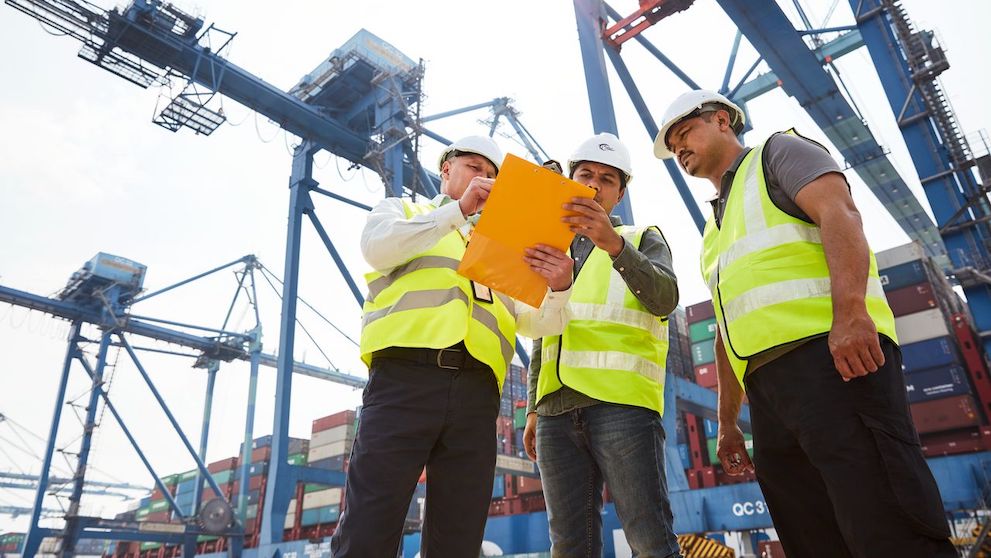The retail landscape has been greatly revolutionised over the years with the advent of the Internet–low barriers to entry and minimal start-up costs. These make it possible for almost anyone to start an e-commerce business.
Given the global nature of the web, it's no surprise that e-commerce has become a popular way for businesses to reach new markets. In 2021, the global e-commerce market was valued at US$5.2 billion and expected to grow even further, figures by Statista indicate.
As a business owner, taking advantage of this thriving e-commerce market is important. But before expanding the reach of your company beyond India, here are four business tips to tackle the global e-commerce industry.
Tip #1: Have a clear, defined market entry strategy
To stand out in the sea of entrepreneurs running their e-commerce stores, you’ll need to find your own competitive edge. Pick out a niche and understand who your target audience is. Get to know your customers’ demographics, tastes and preferences, whether you’re targeting businesses (B2B) or consumers (B2C).
Once you have established the above, research your competition in detail. Look at what other online businesses are doing, such as their marketing and pricing strategy. Identify what works for others and see if this can be applied to your own e-commerce business. Another consideration before breaking into the global e-commerce market is to see whether there is a demand for your product in your target countries.
Finally, after you have ironed out all these details, put all this information into a business plan. This should include a description of what your company does and how it is structured, your target audience, marketing strategy, competitive analysis and financial projections.
Tip #2: Figure out which e-commerce platform works best for your business
With a concrete e-commerce global business strategy penned down, you will need an online platform to host your products so that your customers can find you. Some popular options for an e-commerce platform include Shopify, Wix and BigCommerce.
Start by weighing the pros and cons of each one and identifying the features you need. Some factors to consider include pricing, length of a free trial, availability of customer support options, number of integrated sales channels and mobile app features.
Once you’ve decided on your platform, it is time to create a website. You do not need to learn how to code – the platform’s intuitive features makes it easy to set up a website without the need for scripting. As you build your own site, remember to incorporate essential pages, such as About Us, Products And Services, Local And Overseas Shipping, Contact and Frequently Asked Questions. This ensures customers can navigate your website seamlessly for a great shopping experience.
Tip #3: Optimise your e-commerce business website
With your online shop now up and running, it is time to drive traffic to your e-commerce site. Make sure individuals can find you on Google by using Search Engine Optimisation (SEO). Getting started with SEO is very straightforward, with comprehensive online tools like Moz and Ahrefs to help you rank on the first page of search engine results.
Improving your SEO is really all about publishing good-quality and relevant content on a regular basis. Powerful product descriptions should be accompanied by quality photography so that you can engage potential customers.
Since you are setting up an international e-commerce business, it’s important to consider how the site can be optimised for users worldwide. Providing information in various languages and having overseas shipping options will help you meet customers’ needs abroad.
Another crucial point of the buying cycle is the checkout process. If the user experience is not smooth, you might find customers abandoning their shopping carts altogether. Consider offering multiple payment options, such as credit cards, bank transfers and digital wallets.
Finally, it is advisable to do your research on the import and export requirements governing the local market. Depending on what kind of products or services you offer, some may require extra permits or special approval from the authorities.
Tip #4: Monitor your e-commerce business with analytic tools
When you have launched your global e-commerce business site, you will want to know how the company is doing and which product categories are performing well.
Leverage the power of analytic tools like Supermetrics, Google Analytics or Hotjar to track website traffic, conversion rates and cost per lead. Data-driven decisions allow you to adjust your business as you go along. You can focus your efforts on the right places with more visibility over your online site.
Start sending your parcels abroad with DHL Express
The booming e-commerce industry offers countless growth and expansion opportunities for businesses to tap on. However, despite all the highlights of overseas e-commerce, the space is becoming increasingly competitive. More needs must be met to stand out in this saturated market, such as providing fast and efficient delivery and more shipping locations.
It is thus wise to explore both domestic and international e-commerce shipping options for your customers. As you craft your strategy for e-commerce international shipping, think about the market you are venturing into, the rules and regulations and the costs involved.
Working with a trustworthy logistics service provider like DHL Express can help minimise delays and fulfil e-commerce orders swiftly, allowing your business to enjoy greater customer satisfaction and retention rates.
Providing affordable international shipping rates for e-commerce businesses, DHL Express promises end-to-end support for all your global delivery needs. Register for an account and Register for an account and start shipping abroad today today.



















